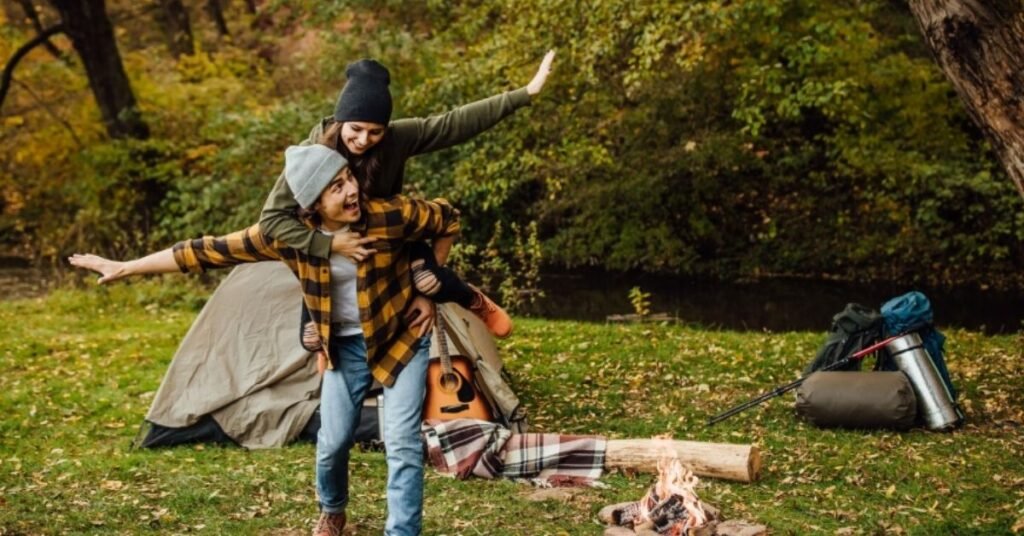Why Camping Makes Family Bonds Stronger
Few activities create family connection quite like camping together in nature. The simple act of leaving home and being unplugged from screens is a powerful way to foster genuine conversations and shared experiences. Family camping experiences can help reduce anxiety, boost mood, and enhance family unity by fostering positive communication. As each family member shares in the set-up, hiking, and nighttime campfire routines, they grow closer through teamwork and laughter.
Planning a family camping trip Massachusetts or any region offers opportunities to step away from daily routines and distractions, creating a rare sense of togetherness. In these outdoor settings, even simple tasks like gathering firewood or setting up tents prompt families to problem-solve and celebrate accomplishments together. These activities foster teamwork, communication, and empathy, which can be applied to daily life at home. When the surroundings are peaceful and fresh air abounds, families can truly relax and focus on each other, making space for stories, inside jokes, and creating lasting bonds that only the simplicity of nature seems to inspire.
Getting Children Involved in Camping
Giving kids an active role in the camping adventure is a powerful way to build self-confidence and excitement about the trip. Children who feel invested in the journey, from helping to pick the location to participating in the packing process, often engage more enthusiastically in the entire experience. Let younger kids gather kindling, help arrange sleeping pads, or organize the meal ingredients, while older children might take the lead on plotting hiking routes or learning how to build a campfire safely. According to Business Insider, involving children in these hands-on responsibilities not only makes the experience more enjoyable but also helps them feel more capable and connected to nature.
- Assign smaller, age-appropriate tasks, such as filling water bottles, checking off supply lists, or helping to hammer in tent stakes.
- Involve kids in daily scheduling, allowing them to suggest hikes, games, or even lunch spots near a scenic view.
- Encourage each child to keep a field journal, sketchbook, or collection of special leaves or rocks to capture their favorite moments.
Involving children in planning not only teaches them responsibility and problem-solving skills, but it also fosters their curiosity. Kids are more likely to take care of their space, follow camp rules, and feel a strong sense of accomplishment when their contributions are valued and recognized, setting the stage for a more harmonious outdoor adventure.
Classic and Creative Camping Games
Games are at the heart of memory-making on any family camping trip. Traditional favorites like tag, hide-and-seek, or capture the flag constantly prove popular because they require almost no equipment yet encourage high-energy fun for all ages. For added interest, families can create a field-day style “campsite Olympics” with relay races, obstacle courses made from sticks and rocks, or a tent setup competition—see who can pitch and take down a tent the fastest. According to Taste of Home, incorporating fun and simple games like flashlight tag, nature bingo, or water balloon tosses can make outdoor adventures even more memorable and entertaining for all age groups.
Scavenger hunts are another standout activity. Parents can create a list of things to find or observe, such as pinecones, different bird calls, unique flowers, or tracks in the mud. This low-prep activity is especially engaging for younger family members. For downtime, bring along cards or small board games suited for outdoor play. Creating new games on the spot, such as “campsite charades” or a nature-inspired trivia night, keeps everyone laughing and engaged. These spontaneous moments often evolve into family traditions that are requested year after year.
Nature Exploration and Learning
Camping provides an ideal setting for nature-based education, enabling children to develop a curiosity and respect for the environment. Exploring the outdoors as a group, looking for signs of wildlife, or identifying different tree species can be as enriching as any classroom lesson. Bring along pocket field guides to make plant and animal identification easy, turning a simple hike into a real-life nature detective adventure.
Activities like leaf rubbing, collecting rocks, or pressing wildflowers can deepen appreciation for the diversity found right underfoot. Immersion in natural environments enhances children’s environmental awareness and fosters healthy intellectual and emotional development. As a family, stargazing at night or building simple shelters or bug hotels out of found materials are creative ways to reinforce learning, spark wonder, and motivate families to return to nature again and again.
Campfire Stories and Activities
A campfire is often the unofficial gathering spot of the campsite. When dusk falls and the embers start to glow, it’s the perfect setting for sharing stories, singing songs, and enjoying timeless rituals. Storytelling can be as simple as reminiscing about past family trips or inventing new tales together. For a fun twist, each person says one line to build a group story or perform goofy skits for the family.
- Host a talent show where everyone gets to share a hidden talent—jokes, poems, or a song.
- Pass around a flashlight and let each person take a turn as the “story leader” to tell a silly or slightly spooky story.
- Roast marshmallows and make s’mores together, enjoying the gooey results while sharing favorite moments from the day.
Campfire games like “telephone,” shadow puppets, or guessing games can extend the fun into the evening, creating a cozy, laughter-filled atmosphere. These shared evening rituals often become the highlight of every camping trip, building anticipation for the next adventure.
Outdoor Cooking with Kids
Cooking outdoors has a magic of its own, transforming meal preparation from a daily routine into a collaborative and creative experience. Kids can help with nearly every step, from planning the menu to assembling kabobs, mixing pancake batter, or wrapping potatoes in foil for the fire. Allowing children to measure, stir, and season gives them ownership over the meal and builds kitchen skills that translate well to their everyday cooking.
- Prepare easy snacks, such as trail mix or fruit kabobs, allowing each child to create their unique combinations.
- Get everyone involved in meal prep—assign one person to wash veggies, another to wrap foil packets, and a third to stir the pot.
- Encourage kids to suggest new meal ideas or experiment with simple campfire desserts.
Studies show that when children help prepare meals, they are more likely to try new foods and develop healthier eating habits. The sense of accomplishment that comes with making dinner outdoors strengthens family bonds and provides practical life skills in a joyful setting.
Tips for Keeping Everyone Safe and Happy
- Stay vigilant, especially with younger children around water, fire pits, or unfamiliar trails.
- Always pack essentials like sunscreen, bug repellent, a first aid kit, and clothing suitable for all weather conditions to stay comfortable and protected.
- Set clear campsite boundaries and review emergency contacts and basic first aid knowledge with everyone before setting out.
- Respect nature by observing wildlife from a distance and leaving plants and animals undisturbed.
- Teach everyone about the “leave no trace” principle: always clean up all garbage, avoid trampling vegetation, and leave the environment better than you found it.
These safety tips help families feel secure and confident, so everyone can focus on having fun while preserving beautiful natural spaces.
Building Traditions Through Camping
Family camping traditions bring excitement and nostalgia even before the next tent is pitched. Some families return to a beloved campground every year, bring the same board game for after-dark entertainment, or plan a “special meal” to kick off each trip. Taking a group photo in the same spot, tracking hikes on a camp map, or collecting mementos like acorns or river stones can also help children create deep, multi-year connections with these outdoor adventures.
As every trip passes, these customs become central to family stories and identity. Children and parents both look forward to these escapes, knowing they will create new laughter, learning, and shared challenges. Ultimately, the lifelong memories and lessons from the outdoors are among the most valuable souvenirs any family can bring home.






